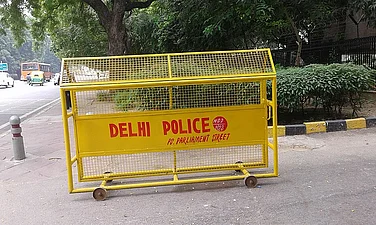A new curriculum for school education, as recommended by the National Education Policy (NEP), will be rolled out in 2022 to equip students with 21st century skills, Prime Minister Narendra Modi said on Friday.
“It has been decided that our students will move towards a new future with this new curriculum when we celebrate 75 years of our Independence in 2022,” he said while addressing a virtual conclave on the topic, ‘School Education in 21st century under NEP 2020’.
The National Council of Educational Research and Training (NCERT) has been mandated to formulate a National Curriculum Framework (NCF) for school education under the proposed 5+3+3+4 curricula structure which will replace the current 10+2 structure of schooling.
“This will be scientific, forward looking and future ready curriculum. We have to equip our students with 21st century skills,” the Prime Minister said. The NCF will be formulated with suggestions from all stakeholders, he added.
Addressing the conclave organised by the Ministry of Education, Prime Minister said that a recommendation for replacing the current 10+2 school curricula with a new 5+3+3+4 structure has been made by the NEP after giving “much thought into this idea”.
Under the 5+3+3+4 curricula, first five year will be foundational stage of schooling, three years in pre-schools and two years of elementary schools in grade 1-2, covering children in the age group of 3 to 8 years.
Next three years will be preparatory stage (grades 3-5), covering children in the age group of 8 to 11years. Then will come another three years of middle stage of schooling (grades 6 to 8) covering children in the age group of 11 to 14.
The final four years of schooling will be secondary stage (grades 9 to 12), covering children in the age group of 14-18 years.
“Playful education of pre-schools is currently available in private schools only in cities. With the introduction of the 5+3+3+4 curricula, it will be available to everyone including those living in rural areas,” PM Modi said.
The Prime Minister said that the NEP’s recommendations on foundational literacy and numeracy will be implemented as “a national mission.”
“We must ensure that children attain oral reading fluency by the time they pass class 3. They should be able to read 30-35 words in a minute. Children shaped up like this will find it very easy to understand contents of other subjects,” he said.
He stressed on the need to teach children in their mother tongue or local regional language up to class 5, saying it will help them learn better.
“Here focus is on learning, not on learning language. Students can learn English and any other foreign language. It’s good to learn different languages. Medium of instruction should be the language which students can understand easily. This will help them learn better,” he said.
In the Programme for International Student Assessment (PISA), conducted by the Organisation for Economic Co-operation and Development (OECD) in 2018, Estonia, Ireland, Finland, Japan South Korea and Poland were among the top ranking countries. “They provide primary education in mother tongue,” Prime Minister added.
Prime Minister said that the implementation of the NEP will reduce the syllabus and make learning “a fun-based and complete experience.” It will also bring reforms in the assessment system to reduce the examination pressure of the students.
“Marks and marksheet have so far dominated learning-based education in India. Can a test, a mark sheet, be a parameter for children’s learning or their mental development? Today the truth is that marksheet has become a mental pressure sheet for students and prestige sheet for families. NEP’s goal is to end this pressure,” he said.
He underlined that one of the major reasons behind the students dropping out from formal education has been lack of freedom of choosing their own subjects.
“The NEP provides for this. Students will not have to remain within the watertight boundaries of commerce, science, and humanities streams. They will be able to choose the subjects they want to study,” he added.


















_21.png?w=200&auto=format%2Ccompress&fit=max)



.jpg?w=200&auto=format%2Ccompress&fit=max)



